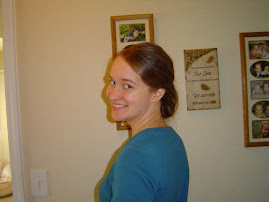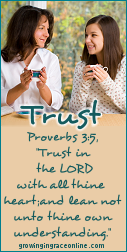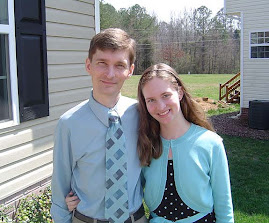3. He that defends or guards from danger; a protector
4. To cover from violence, injury, annoyance or attack; as a valley sheltered from the north wind by a mountain.
5. To defend; to protect from danger; to secure or render safe; to harbor
6. To betake to cover or a safe place
7. To cover from notice; to disguise for protection
Mr. Webster goes on to describe the word “sheltered” in these words, “Covered from injury or annoyance; defended; protected”. This sounds like a good thing, even a merciful blessing, does it not?
When I think of shelter, what comes to mind is the same scenario as one of those Mr. Webster mentioned. Imagine that you are driving down a strange road, lost in a densely wooded, unfamiliar area, when a thunderstorm suddenly strikes. Torrential downpours, deafening thunder, and scary, electrifying lightening plague you as you strive to continue on your journey. Trying to find a familiar road, you seek ever harder to find your way home. Tired, scared, and terribly hungry, you discover that you will be unable to reach home this night. As fear and uncertainty begin to mount in your heart, a beautiful bed and breakfast suddenly comes into view. You joyfully park your car, and with thanksgiving ringing in the depths of your heart, you bound up the stairs to the inviting front door of the dwelling. Greeted by a warm, cheerful, hospitable face, you are quickly welcomed into the warm abode, ever so comforted by this beautiful shelter. This, dear reader, is the true definition of a shelter. By being sheltered in this home, you are not being blinded to the current events outside the door. You know very well what is taking place outside in the storm-this is the precise reason why you were seeking shelter! You were in a dangerous, destructive world in need of shelter and safety, and when such shelter was offered to you, you eagerly accepted it as a precious gift.
As it pertains to the Biblical practice of stay-at-home daughterhood, being truly sheltered does not mean that you are locked away in your father’s home, uneducated about the ways of the world. Rather, you know all too well the destructive lies and immoral practices of the world, and it is for this reason that you are so thankful for the shelter with which this home affords you. A Biblical stay-at-home daughter is discipled in the ways of Christ by her parents, who strive to teach her the Biblical worldview. Not only this, but they also teach her the lies of the pagan, evil worldviews espoused by many in the world and proceed to equip her with an education which strengthens her with a defense against pervading, unbiblical teachings. Furthermore, she is not “sheltered” in the sense that she is unaware of the vile immorality which takes place in the outside world. Rather, she is protected from those immoral influences and is taught by her parents and by the Holy Spirit, through her reading of the Word, about these various acts of immorality, why they are wrong and dishonoring to the Lord, how they harm those who commit such acts, how to guard against committing them herself, etc. Likewise, a stay-at-home daughter who is operating according to Biblical standards by no means lends a deaf ear and a blind eye to the current events of the day. Far from it! Instead, she understands that as a child of God, it is her duty to be well educated in the events of the day, that she might be able to further the dominion of Christ and fulfill her duty to make disciples. True stay-at-home daughters seek to become highly educated in aspects of history and theology, that they might be able to wage war against the schemes of the Devil, proclaim to others the truth of God and the lies of Satan, sound the alarm of what will happen if the world continues on in its sinfulness and depravity, and much more. In other words, she is nothing like the caricature which those who disdain Biblical daughterhood attempt to paint her as. Instead, she represents her father and his ways well, and joyfully submits to the role God ordained specifically for her, being a truly radiant, intelligent polished corner stone (Ps. 144:112b). When her antagonists attempt to label her as a poor sheltered young woman, she lives out 1 Peter 3:16, which says, “Having a good conscience; that whereas they speak evil of you, as of evildoers, they may be ashamed that falsely accuse your good conversation in Christ.”
The word “sheltered” is today widely misrepresented, completely misunderstood, and terribly misused. Those who disdain stay-at-home daughterhood claim the word in their attempts to paint this doctrine in the most dire of terms. In doing so, however, they unwittingly refute their own arguments. For, while stay-at-home daughters are not sheltered in the way in which many today claim, they are nonetheless blessedly sheltered (in the true sense of the word!), which is one of the very reasons why they are dedicated to remaining at home. As a bed and breakfast shelters a lost and weary soul from the raging thunderstorm outdoors, so does a father’s home shelter unmarried daughters from the rape, abuse, deception, harassment, murder, unbiblical teachings, sly stalkers and much more which abound in the world. That, dear reader, is the true meaning of being sheltered. And praise the Lord for it!
Footnote
1. Noah Webster, American Dictionary of the English Language (reprinted by Foundation for American Christian Education, 1995)

























I'm grateful I have lived outside of my father's, er, shelter... that I had the opportunity to live and work all over the world. I always wanted to be on my own.
ReplyDeleteAmen! Thanks for sharing! You have studied well!
ReplyDeleteThank you for your kind words, Jennifer! I appreciate your comment! :)
ReplyDeleteI am so grateful that you have posted such a well written and thoughtful piece. Keep up the good work and I will definately come back to visit and share this with my daughter. Thank You!
ReplyDeleteWhat people mean by "sheltered" would be more accurately described as ignorant of views apart from those held by their family (except in a biased/misrepresented way) because they only socialize with people who believe what they do and do not have the independence to gain life experience and knowledge that can only be gained outside the house.
ReplyDelete